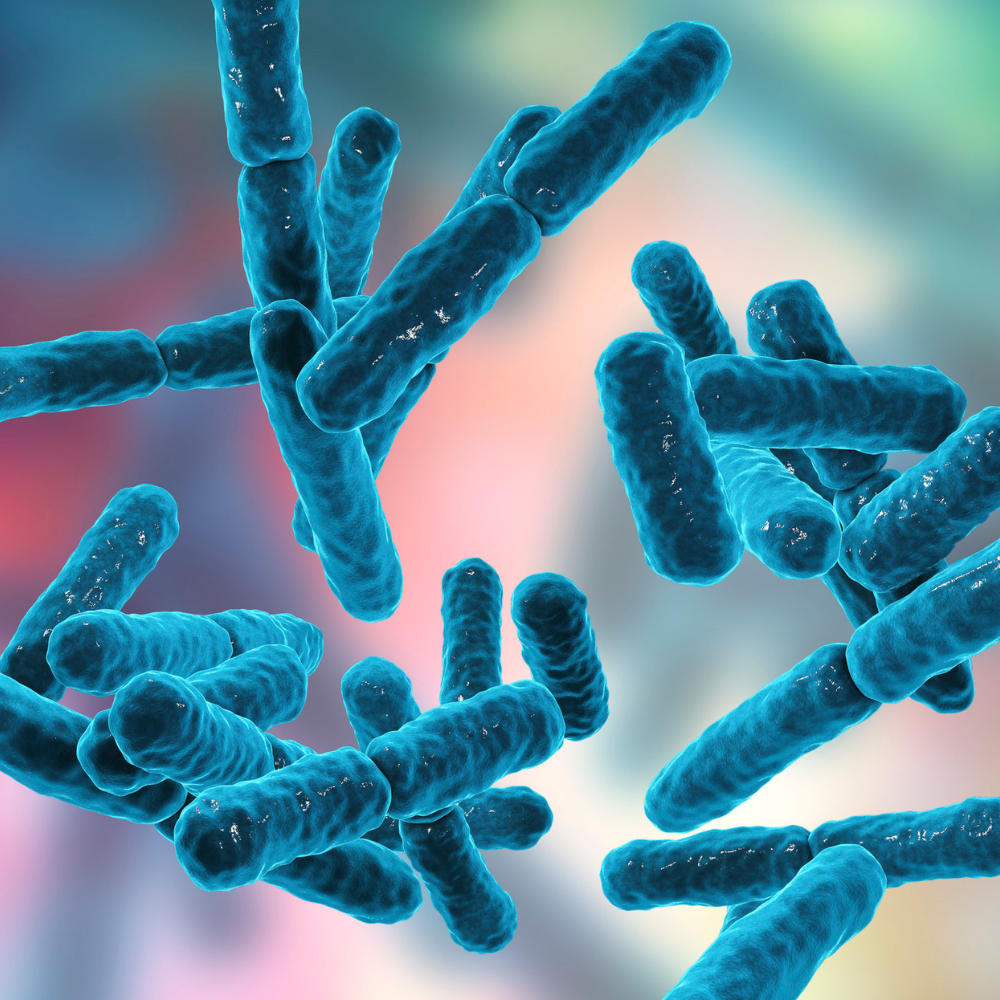How do I improve my gut health?
In the last blog, we learnt about the importance of a healthy gut microbiome balance and its impact on our health, beyond digestion, including our mental health, mood, skin health and immune system. We also looked at what the signs of an unhealthy gut or ‘leaky gut’ are, some of which may take many by surprise that they're connected to the gut at all. So, if you think you might have a gut problem, here are 6 practical and easy ways you can support it.
1. Eat a diverse range of fresh and raw foods
Fruits and vegetables are the best sources of nutrients for a healthy microbiome. They are high in both digestible and indigestible fibre. Indigestible fibre acts as a prebiotic food for certain beneficial bacteria which stimulates their growth. There are hundreds of species of bacteria in your intestines, each of which plays a specific role in health and requires different nutrients for growth. Generally speaking, a diverse microbiome is considered a healthy one. This is because the more species of bacteria you have, the more health benefits they may be able to contribute to. A diet consisting of different food types can lead to a more diverse microbiome.
What foods are good for gut health?
- Raw vegetables, fruit, gluten free grains, nuts and seeds – rich in fibre, antioxidants, vitamins and minerals
- Prebiotic foods - legumes, beans, peas, oats, dandelion greens, onions, Jerusalem artichokes, dandelion greens, garlic, asparagus, bananas and leeks.
- Probiotic foods - naturally fermented foods – miso, tempeh, sauerkraut, kimchi, sourdough bread if you can eat gluten, or natural sugar free yoghurt in moderation.
- Fluids - aloe vera juice, broths, ginger tea, low sugar kombucha (in small daily doses), kefir, and apple cider vinegar
2. Limit high calorie, low fibre foods
This includes refined sugars, alcohol, processed and fast foods. There is an abundance of evidence that a standard Western diet - one that’s high in processed sugars and fats - causes unhealthy changes to the composition of your gut microbiome and the integrity of your intestinal wall, leading to a raft of long term health issues, like diabetes, obesity, depression, Alzheimer's and cardiovascular disease to name a few.
3. Drink water every day
Plenty of water helps to keep you hydrated and your digestive tract moving and emptying naturally. Studies have found that drinking plenty of water may be linked to increased diversity of bacteria in the gut, and it also found that people who drank more water had lower levels of bacteria known to cause gastrointestinal infections. Staying hydrated also helps to keep your stools soft and easy to pass, thus helping to prevent constipation. It’s a simple and effective way to promote a healthy gut.4. Implement stress relieving practices
Chronic high levels of stress is challenging for your whole body, including your gut. Stress can inhibit or slow digestion and stall or increase bowel emptying via your nervous system. Try activities such as meditation, yoga, breathwork, walking or all of them to reduce your levels of stress. If you need to calm your stress you might like like to try Lifestream Quick Calm.
5. Get plenty of good sleep every night
Just like stress, sleep deprivation can affect digestion and therefore gut health. Sleep is a time to download the day, shut down the conscious mind and allow the body to rest and reset. Sleep is also a time when healing and renewal can happen uninterrupted, including in your gut, so it's really important that you're sleeping well and without interruption as much as possible. We also know good sleep patterns can be difficult to reset and then maintain if you’ve been sleeping badly for a while. This is a common issue for the greater population which is why we’ve formulated a sleep formula that not only gets you off to sleep but also helps to shut down the worries of the day, and keep you asleep, so you wake feeling refreshed. Try Lifestream Magnesium Sleep Switch.
6. Take a probiotic supplement
The diversity of your gut microbiome and its balance can be supported by taking a probiotic supplement. A probiotic is a yeast or bacterial strain that is compatible with us. Probiotics introduce good bacteria and help to keep pathogenic bacteria from dominating and upsetting the delicate ecosystem in your intestinal tract. Depending on the strain they reside in either the small or large intestine. Probiotics tend to multiply quickly and compete with the pathogenic ‘bad’ bacteria for food and space to establish a healthier balance between the two. In supporting better gut flora balance, probiotics increase your capacity to digest food more effectively, ensuring your food is broken down into smaller molecules (vitamins, minerals, and antioxidants) so that they can make their way seamlessly through the gut wall and into your blood stream.
Lifestream offer 3 probiotics to choose from designed to support your specific needs. If you need help with choosing the right probiotic, or if you're taking medication, give our Naturopath a call for a confidential chat on 0800 88 15 15.
Our 3 probiotic formulas are micro-encapsulated so they get where they need to be in your gut to work best, and they don't need to be refrigerated - which is great if you need to keep your probiotics in your bag with you.
Probiotics Mood + Immune: is a unique formula that supports your gut flora for healthy mood balance and immune defences. It's designed to support your body's response to everyday stress, support your immune system health and gut microbiome balance. 
Probiotics Metabolise: contains 7 specific beneficial bacteria strains designed to support healthy gut and weight balance. It supports a healthy BMI, blood sugar levels, and healthy gut microbiome balance.

Probiotics 14 Strains: is a broad spectrum probiotic formula that can support the health of your skin, digestion, immune defences and more by supporting the growth of beneficial bacteria. The capsules are micro-encapsulated for better absorption into your body, plus there's no need to keep them refrigerated - which is great if you need to keep your probiotics in your bag with you.

Disclaimer – This information should not to be considered a replacement for medical advice, and we recommend you speak to your healthcare professional or contact your Naturopath if you have any questions related to this information.






